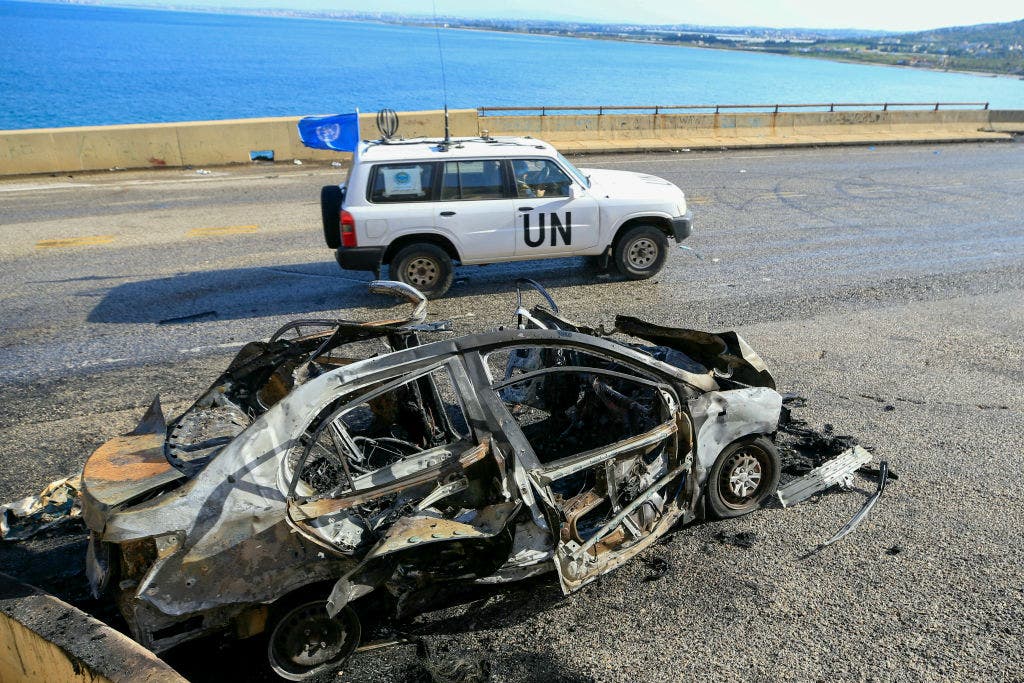As Israel and Hezbollah navigate a tenuous cease-fire agreement, concerns about the effectiveness of United Nations (U.N.) peacekeepers in enforcing U.N. Security Council Resolution 1701 have gained renewed prominence. The cease-fire, which went into effect on November 27 following negotiations led by the U.S. and France, aims to quell over a year of escalating tensions between Israel and Hezbollah. Under the terms of the agreement, Hezbollah must withdraw its forces north of the Litani River, while Israeli troops are to pull back within 60 days. The fragile nature of this arrangement is evident, as both factions exchange accusations of violations, prompting a closer examination of the U.N. Interim Force In Lebanon (UNIFIL) and its mandate.
The cease-fire’s immediate aftermath has been marred by allegations of violations, notably from Hezbollah, which recently launched projectiles across the border, claiming that Israel breached the terms. Israeli Prime Minister Benjamin Netanyahu emphasized the seriousness of these violations, asserting that Israel would respond decisively to any aggression by Hezbollah. A five-nation monitoring committee spearheaded by the U.S. has been established to oversee the adherence to the cease-fire, an initiative referred to by U.S. envoy Amos Hochstein as a transformative effort to address longstanding conflicts in the region. However, skepticism looms over whether this new arrangement will prove effective given the historical context of UNIFIL’s previous shortcomings in similar conflicts.
Experts have pointed to the historical failures of U.N. peacekeeping missions, using examples from Somalia, Rwanda, and the Balkans to highlight the challenges faced by UNIFIL in enforcing Resolution 1701. Javed Ali, a former U.S. counterterrorism official, expresses doubt that the revised resolution will yield different outcomes, noting that the Lebanese Army and UNIFIL are both tasked with ensuring that Hezbollah cannot re-establish a military presence south of the Litani River. This precarious situation reflects the complexities of regional dynamics, with Hezbollah having developed an extensive operational infrastructure that regularly operates within close proximity to U.N. peacekeepers.
Recent reports from the ground underscore frustrations within the Israeli Defense Forces (IDF) regarding UNIFIL’s presence and operations. Embedded journalists have documented contentious interactions between IDF soldiers and UN peacekeepers, especially during violent engagements in southern Lebanon. Soldiers have expressed distrust towards UNIFIL and raised concerns that leaving regions under their management would revert to conditions that previously enabled Hezbollah’s tactical advantages. Additionally, there have been credible allegations that Hezbollah has utilized U.N. convoys for intelligence-gathering operations, leading to accusations of collusion between the peacekeeping mission and the militia.
In a stark contradiction to claims of stability stemming from UNIFIL’s presence, experts argue that Hezbollah has circumvented many of the stipulations of Resolution 1701, carrying out extensive military buildup activities during the period of the cease-fire. Following Hamas’s massive attack on Israel on October 7, Hezbollah escalated its operations along the Israeli-Lebanese border, launching numerous assaults from positions alarmingly close to UNIFIL bases. The frequency of such violations raises questions about UNIFIL’s ability to effectively monitor and report on these hostilities, with IDF officials indicating that many projectiles fired by Hezbollah have fallen within or near U.N. installations, while UNIFIL has only occasionally specified Hezbollah as responsible for attacks.
Amidst this tumult, UNIFIL has defended its role, emphasizing its limited mandate focused on monitoring and reporting rather than on enforcement. A spokesperson has reiterated that it is the responsibility of both Lebanon and Israel to implement the terms of Resolution 1701, while expressing concern over the proliferation of unauthorized weapons in southern Lebanon. Despite the claim of relative stability from 2006 to 2023, the ongoing violations signal a growing challenge to the U.N. mission’s credibility and efficacy in conflict resolution.
As the cease-fire endures, albeit with increasing violations, analysts caution that its sustainability remains in jeopardy. Israel’s lack of confidence in UNIFIL’s capacity to manage Hezbollah’s military presence reflects a broader skepticism regarding the effectiveness of international peacekeeping efforts in the region. Ultimately, the future of the cease-fire, the protection of civilians, and the stability of southern Lebanon hinge on the ability of both sides to adhere to the agreement, balanced against the backdrop of historical mistrust and UNIFIL’s perceived failings.


